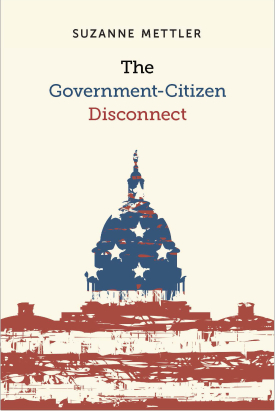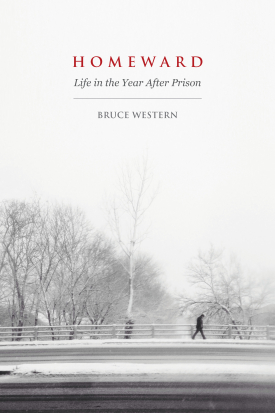About This Book
A paper from the Playground Association of America calling for a play organizer position for children's play.
HOWARD BRADSTREET was a member of the Playground Association of America.
A paper from the Playground Association of America calling for a play organizer position for children's play.
HOWARD BRADSTREET was a member of the Playground Association of America.
A 1909 report on the effect of irregular school attendance on children's grade progress, printed in volume III of The Psychological Clinic.
LEONARD P. AYRES was director at the Division of Education of the Russell Sage Foundation, former general superintendent of schools for Puerto Rico, co-author of “Medical Inspection of Schools;” and author of “Laggards in Our Schools.”
New work hour standards for workers in hourly-paid jobs—such as “fair workweek,” “secure,” or “predictive” scheduling policies—have been implemented in San Francisco, Seattle, New York City, and the state of Oregon, and elsewhere. Similar legislation is being considered in cities such as Chicago, states including California and New York, and nationally in the Schedules That Work Act. However, the extent to which these laws are effective in addressing actual scheduling practices has not yet been evaluated.

Winner of the 2019 Alexander George Book Award from the International Society of Political Psychology (ISPP)
"Why do so many Americans both depend on public programs and express distrust and opposition to the federal government that provides them? Suzanne Mettler, one of the most original political scientists working today, offers crucial answers to this puzzle. Her important new book, The Government-Citizen Disconnect, will engage citizens and scholars alike at a juncture of crisis, controversy, and revitalization for American democracy."
—Theda Skocpol, director, Scholars Strategy Network, and Victor S. Thomas Professor of Government and Sociology, Harvard University
"Americans hate government. They also depend on it more and more. In this compelling and deeply researched book, Suzanne Mettler shows that this paradox is at the heart of our current political crisis. Anyone who cares about the future of the country should read The Government-Citizen Disconnect."
—Jacob S. Hacker, Stanley B. Resor Professor of Political Science, Yale University
Americans’ relationship to the federal government is paradoxical. Polls show that public opinion regarding the government has plummeted to all-time lows, with only one in five saying they trust the government or believe that it operates in their interest. Yet, at the same time, more Americans than ever benefit from some form of government social provision. Political scientist Suzanne Mettler calls this growing gulf between people’s perceptions of government and the actual role it plays in their lives the "government-citizen disconnect." In The Government-Citizen Disconnect, she explores the rise of this phenomenon and its implications for policymaking and politics.
Drawing from original survey data which probed Americans’ experiences of 21 federal social policies -- such as food stamps, Social Security, Medicaid, and the home mortgage interest deduction -- Mettler shows that 96 percent of adults have received benefits from at least one of them, and that the average person has utilized five. Overall usage rates transcend social, economic, and political divisions, and most Americans report positive experiences of their policy experiences. However, the fact that they have benefited from these policies bears little positive effect on people’s attitudes towards government. Mettler finds that shared identities and group affiliations are more powerful and consistent influences. In particular, those who oppose welfare tend to extrapolate their unfavorable views of it to government in general. Deep antipathy toward the government has emerged as a conservative movement waged a war on social welfare policies for over forty years, even as economic inequality and benefit use increased.
Mettler finds that patterns of political participation exacerbate the government-citizen disconnect, as those holding positive views of federal programs and supporting expanded benefits have lower rates of involvement than those holding more hostile views of the government. As a result, the loudest political voice belongs to those who have benefited from policies but who give government little credit for their economic well-being, seeing their success more as a matter of their own deservingness. This contributes to the election of politicians who advocate cutting federal social programs. According to Mettler, the government-citizen disconnect frays the bonds of representative government and democracy.
The Government-Citizen Disconnect illuminates a paradox that increasingly shapes American politics. Mettler's examination of hostility toward government at a time when most Americans will at some point rely on the social benefits it provides helps us better understand the roots of today's fractious political climate.
SUZANNE METTLER is the Clinton Rossiter Chair of American Institutions at Cornell University.

Winner of the 2019 Outstanding Book Award from the Inequality, Poverty, and Mobility Section of the American Sociological Association
2018 Choice Outstanding Academic Title
“Bruce Western, our foremost authority on mass incarceration, has filled in a yawning gap in the research on one of the great banes of our era. Homeward is a thorough and deeply illuminating study on the end-point of mass incarceration—the effort to reintegrate ex-offenders into our society. The challenges outlined in the book should not simply inform our reentry efforts, but should also make us question the American policy of handing down sentences, which, in some profound way, never really end.”
—Ta-Nehisi Coates, National Correspondent, The Atlantic
“In Homeward, Bruce Western probes in rich detail the lives of ex-prisoners in their first year of life back on the streets of Boston. He looks unflinchingly at the correlated web of adversities that men and women face in the transition out of prison, especially how violence, drug and alcohol addiction, mental illness, and family chaos exacerbate the stigma of a prison record in the reentry to society. Beautifully written and deeply researched, this book provides an important framework on social and criminal justice. The implications for policy are profound.”
—Robert J. Sampson, Henry Ford II Professor of the Social Sciences, Harvard University
In the era of mass incarceration, over 600,000 people are released from federal or state prison each year, with many returning to chaotic living environments rife with violence. In these circumstances, how do former prisoners navigate reentering society? In Homeward, sociologist Bruce Western examines the tumultuous first year after release from prison. Drawing from in-depth interviews with over one hundred individuals, he describes the lives of the formerly incarcerated and demonstrates how poverty, racial inequality, and failures of social support trap many in a cycle of vulnerability despite their efforts to rejoin society.
Western and his research team conducted comprehensive interviews with men and women released from the Massachusetts state prison system who returned to neighborhoods around Boston. Western finds that for most, leaving prison is associated with acute material hardship. In the first year after prison, most respondents could not afford their own housing and relied on family support and government programs, with half living in deep poverty. Many struggled with chronic pain, mental illnesses, or addiction—the most important predictor of recidivism. Most respondents were also unemployed. Some older white men found union jobs in the construction industry through their social networks, but many others, particularly those who were black or Latino, were unable to obtain full-time work due to few social connections to good jobs, discrimination, and lack of credentials. Violence was common in their lives, and often preceded their incarceration. In contrast to the stereotype of tough criminals preying upon helpless citizens, Western shows that many former prisoners were themselves subject to lifetimes of violence and abuse and encountered more violence after leaving prison, blurring the line between victims and perpetrators.
Western concludes that boosting the social integration of former prisoners is key to both ameliorating deep disadvantage and strengthening public safety. He advocates policies that increase assistance to those in their first year after prison, including guaranteed housing and health care, drug treatment, and transitional employment. By foregrounding the stories of people struggling against the odds to exit the criminal justice system, Homeward shows how overhauling the process of prisoner reentry and rethinking the foundations of justice policy could address the harms of mass incarceration.
BRUCE WESTERN is the Daniel and Florence Guggenheim Professor of Criminal Justice Policy and Professor of Sociology at Harvard University, and Co-Director of the Justice Lab at Columbia University.
A paper presented at the fifty-first congress of the American Prison Association in 1921, surveying the conditions of 30 of the 52 county jails in Florida at the time.
BERT C. RILEY was director of the General Extension Division of the University of Florida.
A review of the development of the community center as a distinct institution and government agency, ten years after such a proposal was made to reformers the 1911 First National Conference on Civic and Social Center Development. The article first appeared in 1921 in the New York Evening Post and reprinted in the September-October 1921 number of the Community Center.
CLARENCE ARTHUR PERRY, Department of Child Hygiene, Russell Sage Foundation
An introduction to the study of the work of child-helping societies, presented at the National Conference of Charities and Correction in 1906.
WILLIAM H. PEAR was manager of the Provident Society, Boston, Massachusetts.
This 1909 paper argues that the great increase of child labor at the time led to a sharp increase in children giving up the opportunity for an education as well as for proper physical development through recreation spaces and playgrounds.
E. W. LORD, Playground Extension Committee, Russell Sage Foundation
A 1910 report of the Fairview Garden School Association of Yonkers, N.Y., detailing the origin and growth of the school garden, including costs and plans for maintenance.
A. L. LIVERMORE was chairman of the Executive Committee of the Fairview Garden School Association.